Research
-
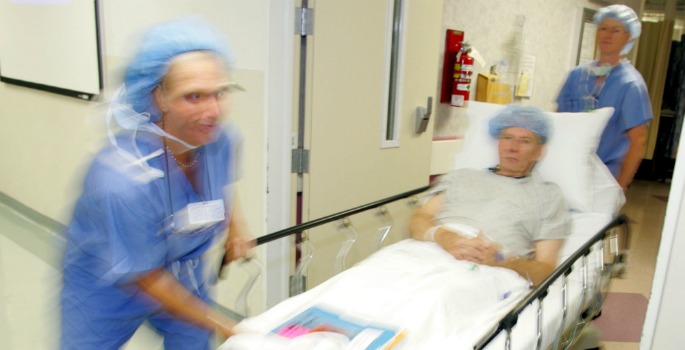
Predicting hospital readmission is risky business: study
Each year millions of Americans return to the hospital within 30 days of their previous discharge. Although many readmissions could be preventable, most statistical models for predicting them "perform poorly," according to researchers at Vanderbilt and the Oregon Health and Science University and their affiliated VA medical centers. Read MoreOct 18, 2011
-

Why customer loyalty doesn’t always pay
New research by Vanderbilt Owen Graduate School of Management professor Bruce Cooil and his coauthors finds that for all the attention companies pay to achieving high satisfaction levels among their customers, what matters most is how well a company ranks in comparison to rivals. No matter how much a customer likes a company or product, if they don’t like it more than the competition, they don’t always put their money where their mouth is. Read MoreOct 17, 2011
-

Discoveries show value of federal support
An update on federally funded projects at Vanderbilt and their impact on efforts to improve education, protect people from disease and meet our nation’s energy needs. Read MoreOct 13, 2011
-

Supplements don’t help lung injury patients
Supplements did not improve outcomes of patients with acute lung injury. Read MoreOct 13, 2011
-
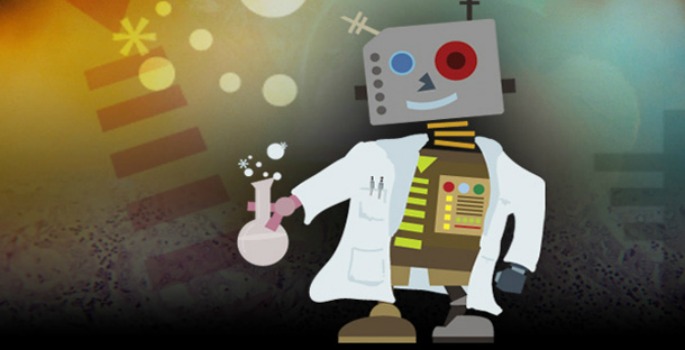
Robot biologist solves complex problem from scratch
A team of scientists has taken a major step toward developing robot biologists. They have shown that their system, the Automated Biology Explorer, can solve a complicated biology problem from scratch. Read MoreOct 13, 2011
-
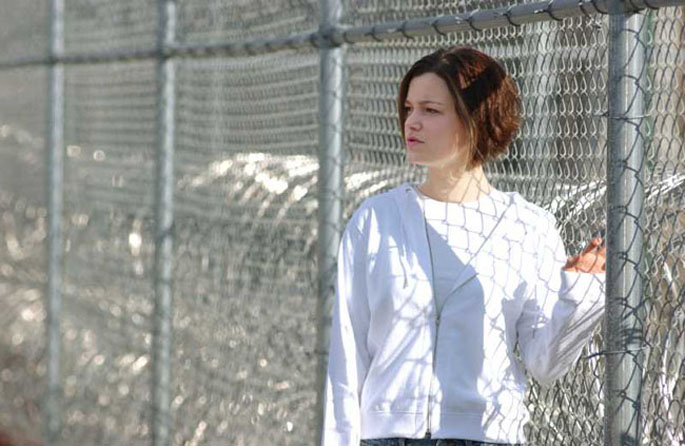
Results instead of revenge: A new plan for juvenile justice
The struggle against juvenile crime may come down to one simple question, says a Vanderbilt University researcher: Do we want revenge or do we want results? If we want results, says legal expert Christopher Slobogin, we should dramatically reform the system to stress community-based treatment over incarceration. Read MoreOct 13, 2011
-

New center director explores connections between humanities and medicine
Jonathan Metzl was born into medicine but is drawn to the humanities. He’s still insisting on having it both ways. Read MoreOct 12, 2011
-

Political scientist looks at elections and why they matter
Larry Bartels, arguably the most influential political scientist of his generation, researches a mix of psychology and democracy for a holistic understanding of the political process. Read MoreOct 12, 2011
-

Defending education and innovation in the face of the budget-cutting wave
Joint Select Committee on Deficit Reduction members (C-span) These days the news is full of stories about the Joint Select Committee on Deficit Reduction, nicknamed the Super Committee, and whether it can come up with a politically acceptable way to reduce the ballooning federal deficit. This… Read MoreOct 11, 2011
-

Diversity key in antibody repertoire
Antibodies to the 2009 H1N1 influenza strain reveal new insights into how antibody diversity forms and functions, with possible implications for designing flu vaccines. Read MoreOct 7, 2011
-
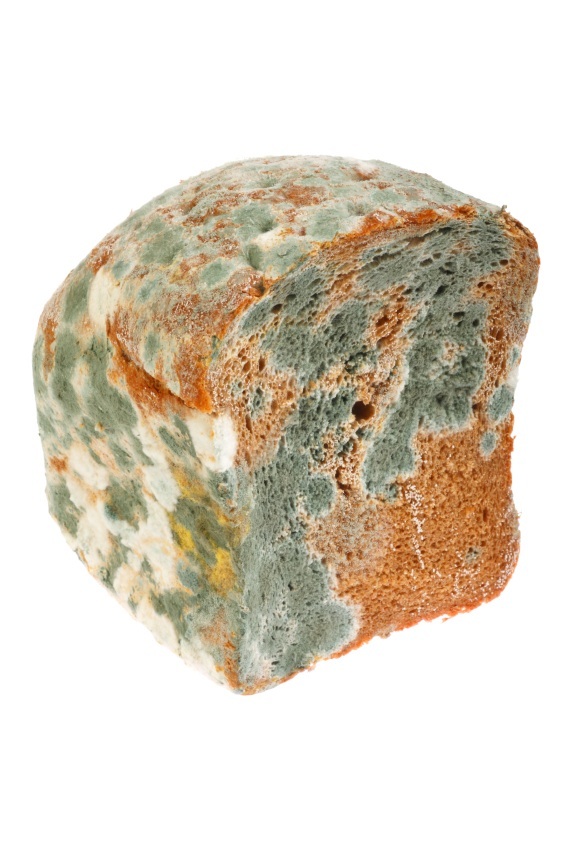
Fungus toxin gets in the way in DNA
Structural studies are providing insight to how aflatoxin – a toxin produced by fungi – contributes to cancer development. Read MoreOct 7, 2011
-
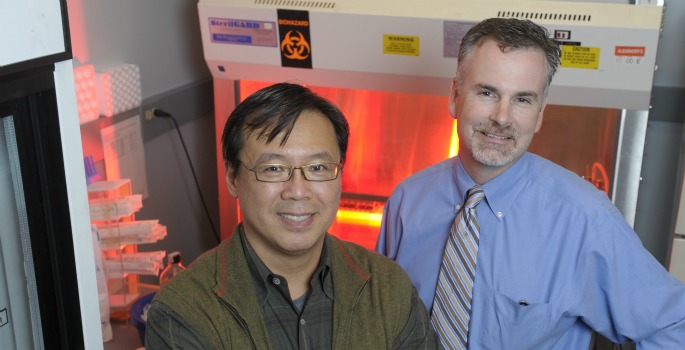
Heart protein may be target for colon cancer therapies
A protein critical in heart development may also play a part in colon cancer progression. Read MoreOct 7, 2011
-

Taking introductory astronomy beyond Jeopardy and Trivial Pursuit
Astronomer David Weintraub has given introductory astronomy a “CSI” format by following the scientific evidence that gives us the age of the universe and has put this in a popular science book. Read MoreOct 7, 2011
-

Parkinson’s deep brain target fired up
Neuronal activity in a deep brain region increases as Parkinson’s disease advances, a new study suggests. Read MoreOct 5, 2011
-

Marketing radically new products requires a dose of familiarity
Consumers adopt innovation only when the costs—and risks—are low, says Vanderbilt marketing professor Steve Hoeffler. Read MoreOct 4, 2011
-

Drug-like molecules aimed at improving treatment of Parkinson’s
Drug-like molecules described by Vanderbilt researchers could lead to Parkinson's treatments with fewer side effects. Read MoreSep 30, 2011
-

Dean Benbow visits the White House
First Lady Michelle Obama addresses the National Science Foundation's Career-Life Balance initiative event in the East Room of the White House. (Official White House Photo by Lawrence Jackson) On Monday, Sept 26, when First Lady Michelle Obama hosted an event at the White House to announce… Read MoreSep 30, 2011
-

Folate may lower breast cancer risk for some
Low folate levels may increase a premenopausal woman’s risk of developing breast cancer. Read MoreSep 29, 2011
-
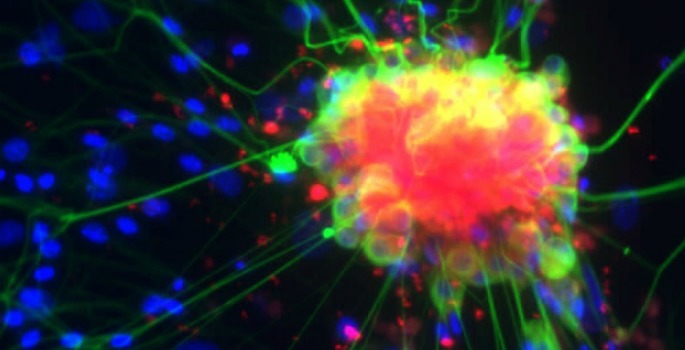
Study puts a new spin on ibuprofen’s actions
Vanderbilt University investigators have discovered surprising new insights into the actions of NSAIDs. Read MoreSep 29, 2011
-

New study confirms safety of eight vaccines
A report released by the Institute of Medicine confirms the safety of eight vaccines studied by a committee of experts. Evidence showed no links between immunization and serious conditions that have raised concerns, including Type 1 diabetes and autism. Read MoreSep 28, 2011